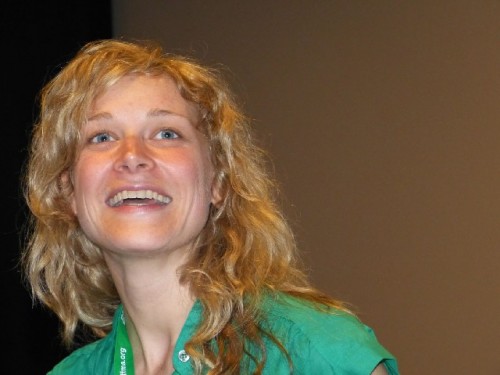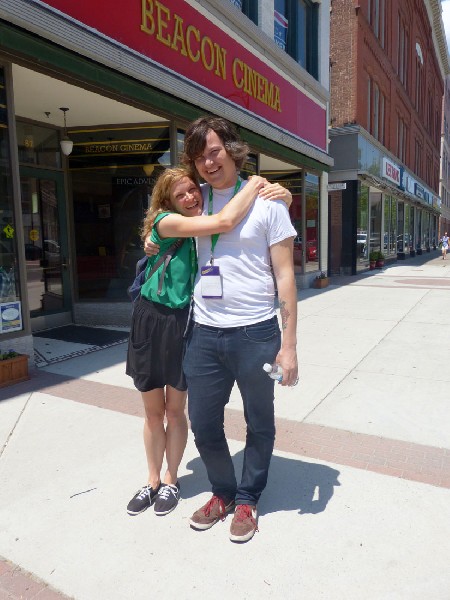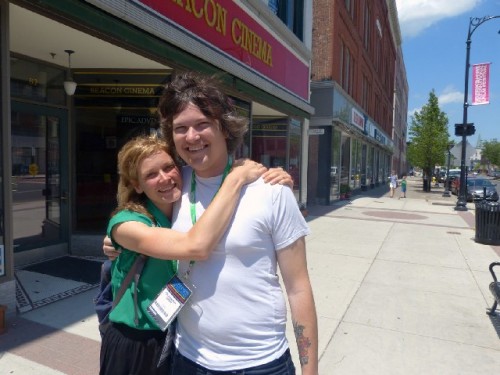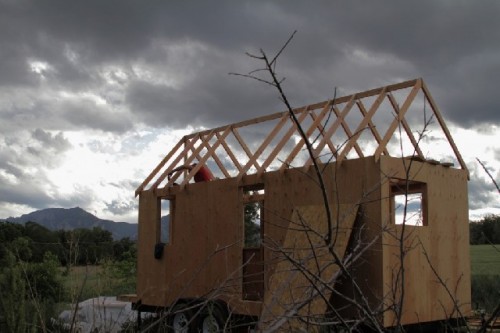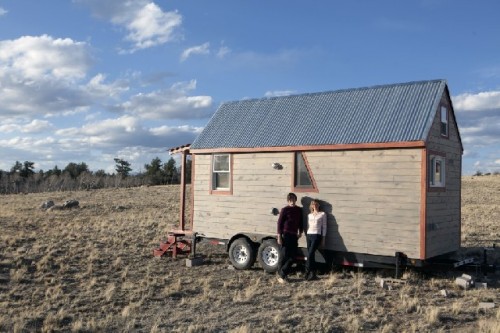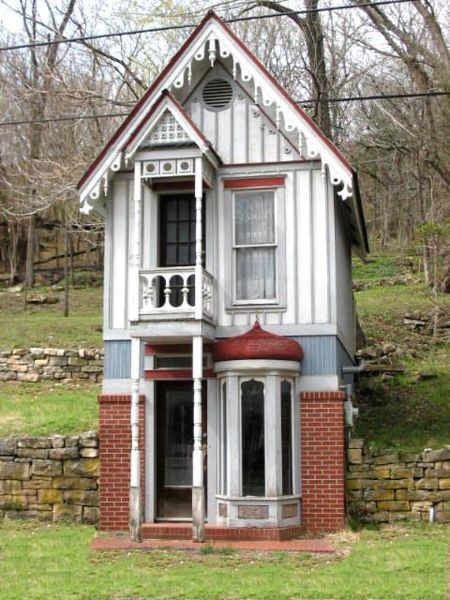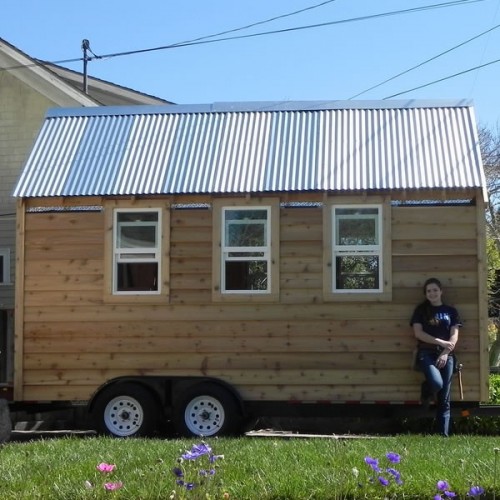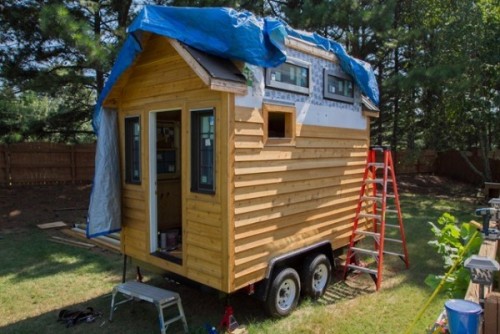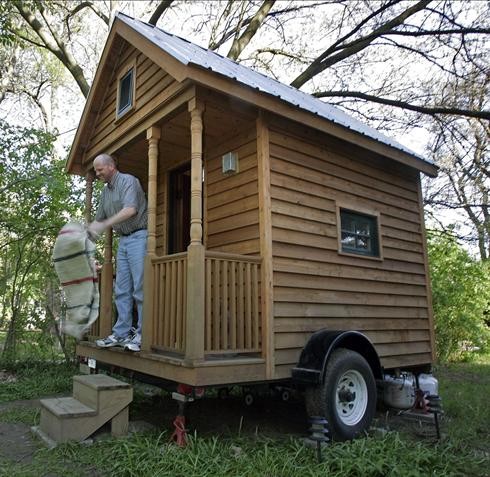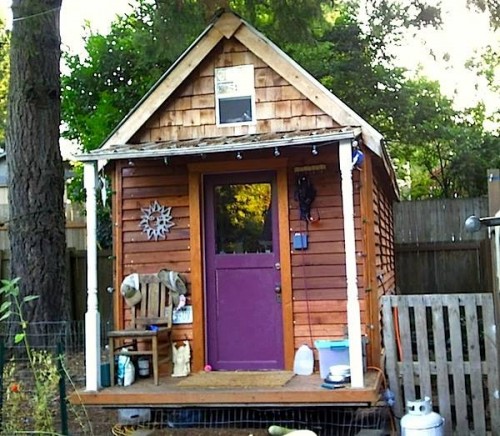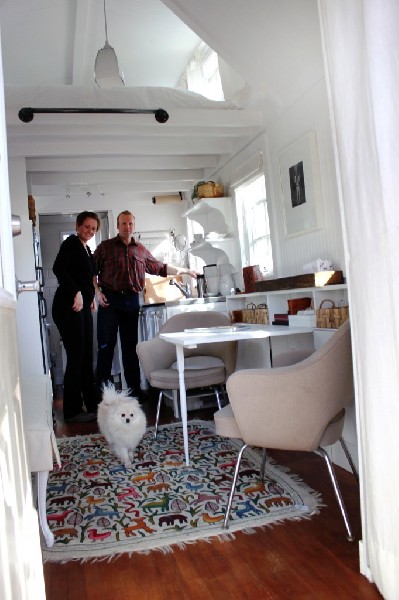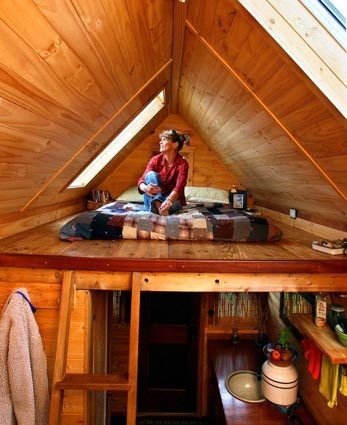Tiny: A Story About Living Small
BIFF Screening by Merete Mueller and Christopher Smith
By: Charles Giuliano - Jun 04, 2013
Truth is most of us live beyond our means, take up too much space, and acquire way too much stuff.
A status symbol of success is to have an enormous McMansion.
Like the Newport Cottages of the Gilded Age of the Robber Barons.
Americans are too readily enamored by the British Downton Abbey syndrome.
Grubby little peasants we fantasize about servants waiting on us hand and foot. Dressing formally, white tie not black tie which lacks panache, for dining each and every night of the week.
Bleeding ridiculous. Sod the royals and all that bollocks.
In an utterly charming and informative documentary “Tiny: A Story About Living Small” by Merete Mueller and Christopher Smith we are seduced by a younger generation thinking of downsizing their living conditions and possessions.
Instead of energy guzzling, sprawling McMansions they are part of the McMidget movement of Tiny houses.
Think really compact and small. Say 120 square feet and less.
If less is more than this is about less and less and less.
As things turn out it’s not that easy to build a small house.
For anything less than 500 square feet it violates the building code of most American communities.
Unless it’s on wheels.
At which point it’s not a house but a mobile home or trailer.
Not that mobile homes are anything new. There are zillions of them but their occupants are more often denigrated as “trailer trash” and hardly praised as progressives and environmentalists.
In Europe, particularly the Netherlands, many people reside on house boats. Again, not houses or mobile homes, but perhaps floating homes.
Or yachts. Lots of folks live on ones that are indeed quite small and compact. Hooking up and taking showers at the adjacent marina.
So this Tiny movement is actually an old but reenergized "new" idea.
The film embraces Thoreau and his Walden cabin as a spiritual ancestor.
The Provincetown Dune Shacks date back to the early 20th century. In rural America there must be millions of grandfathered shacks and shantys that could never pass code today.
What is intriguing about this film is that the notion of living small and debt free is being embraced by twentysomethings. They have on average some $80,000 in student loans and debt. The total figure for this hovers around $1 Trillion.
Good grief.
The American dream mandates that each generation lives better than that of its parents and ancestors.
Not anymore.
The reality is that the majority of young people emerging with expensive degrees are having hard times finding entry positions in their chosen fields.
Paraphrasing the totally captivating and perky Merete that means working a job you hate to make money to pay off debt and buy stuff you don’t need.
Guilty as charged.
Actually I loved my job teaching arts and humanities at the college level.
And we are living debt free with a loft and home and way too much stuff.
Which I can never easily part with.
Last summer while renovating the basement we took a trailer full of moving boxes we never opened and miscellaneous stuff to the dump.
Roman, who helped us, rubbed it in asking if I wanted to hold onto that Frisbee?
Ok. Chuck it. But I will never, ever get rid of my lps and books.
Roman was really leaning on me to get rid of the videotapes and make space on shelves. I compromised and got rid of some of them.
These confessions of possessiveness and materialism are a way of saying how much I totally admire Christopher and Merete. Not that I am even vaguely interested in emulating them.
We pick up Christopher’s amazing adventure buying a flat bed trailer.
He has set aside three intense summer months to build the house in the back yard of friends. Come fall the plan is to drive it to the plot of land he has purchased with its spectacular view of distant mountains.
Starting out he has like zero construction skills. But lots of nerve, energy and determination.
Of course it proves to be far harder and takes way longer than anticipated.
A full year actually.
During which Merete pursues a dream to live and work in New York. There are no real career options for a writer in the desolate west.
By the end of the summer Christopher has run out of cash and needs to go back to work to earn money to buy materials and power tools.
While the incremental details of construction are chronicled the filmmakers offer enticing sidebars with visits to a number of Tiny homes and their fascinating occupants. They are indeed very interesting people all with compelling individual stories and motivations for living small.
There is a wonderful moment when Christopher, who previously knew nothing about electricity, plugs in the house and all the lights and switches actually work.
Finally the house is driven to its new location.
Following the film there were lots of lively and engaging questions. Too many for the time allotted. I caught up with them for further comments and a photo op outside the Beacon Theatre.
The tools and materials that went into the house cost some $28,000 for which Christopher paid cash. In addition they had to fund raise for their first film. They fudged on what it cost but Merete cryptically commented that it came to “more than the house.” But they now have cameras and equipment for other projects.
Of course what you really want to know is what it's like for a couple to stand each other in such close quarters? That line of inquiry didn’t get very far but they were all hugs and kisses. Although she lives and works in Queens and he has moved the residence to a parking space in Boulder which is close to where he works.
When the house is driven out to that desolate location in spectacular nature they are a half hour from a garage, diner and package store. Groceries are an hour away and with such limited storage and refrigeration that implies frequent food runs.
In the middle of nowhere they rely on solar panels for energy. It would be prohibitively expensive to dig a well so they buy the water they use sparingly for cooking and bathing. A chemical toilet eliminates the need for plumbing.
For now all is copasetic but only time will tell whether living Tiny is such a big deal.


